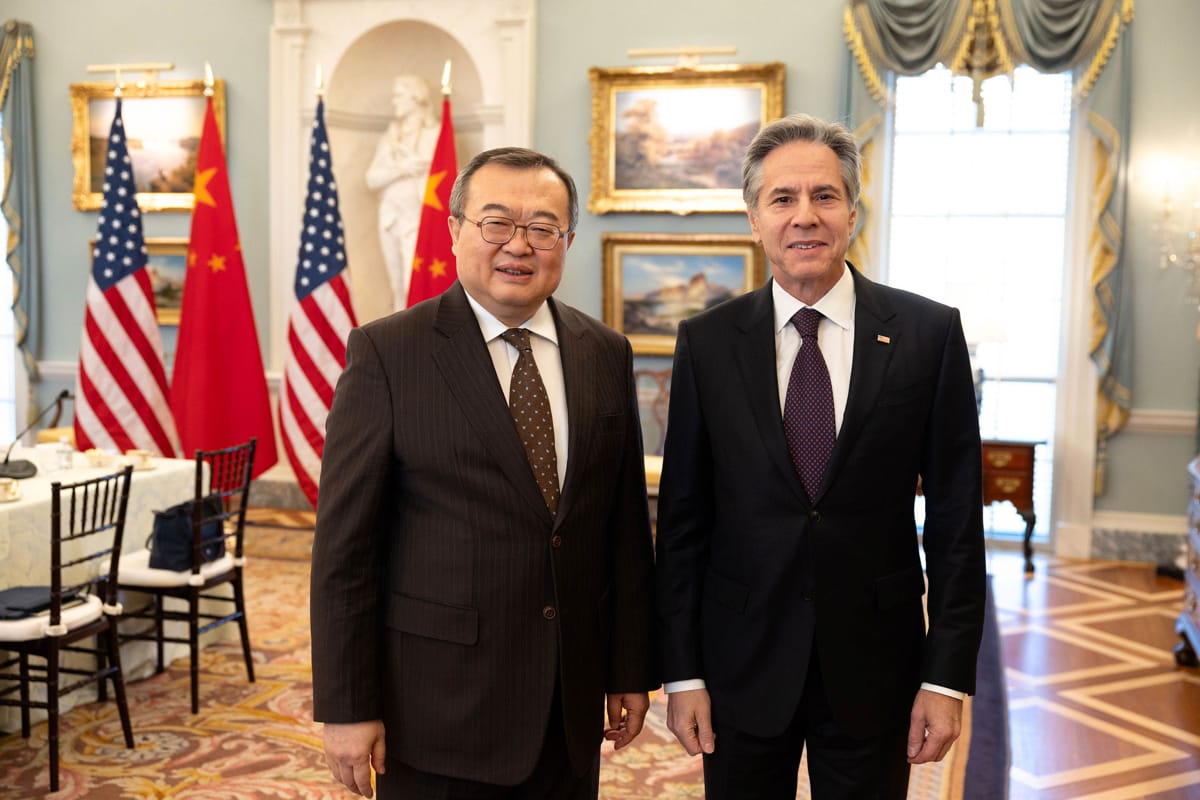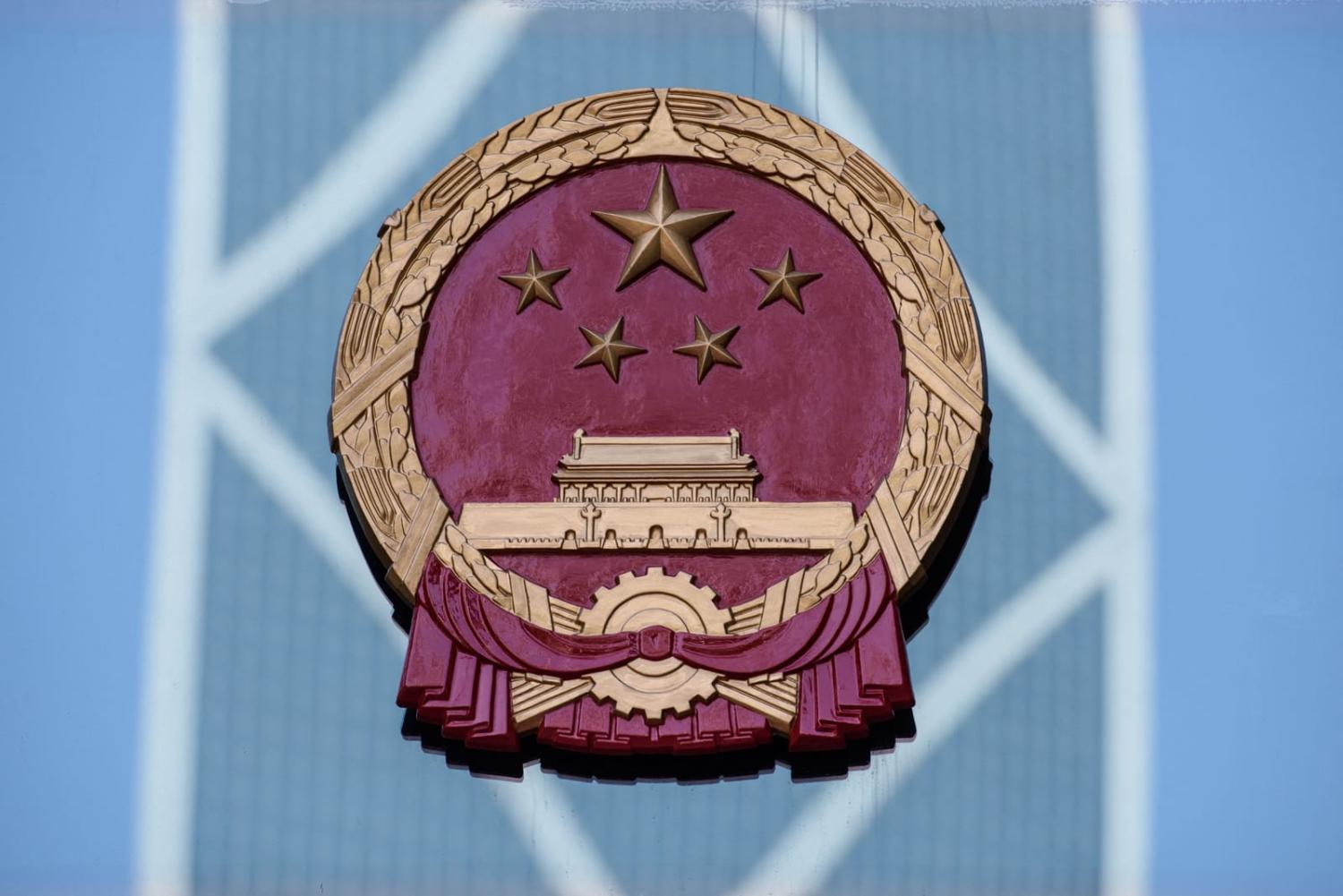Two recent developments underscore a transformation in China’s foreign relations, characterised by assertiveness and, paradoxically, also nuance.
The first approach was signalled with the appointment last month of Admiral Dong Jun as the new Minister of Defence, given Dong is known for his expertise in the South China Sea, a major priority for China.
But a shift was also evident by the visit to the United States this month by Liu Jianchao, Minister of the Chinese Communist Party’s International Liaison Department – a man described by some as China’s “second foreign minister”. Liu sent a message in his engagement with the US Council on Foreign Relations as well as talks with US Secretary of State Antony Blinken that China remains committed to sustainable growth, moving from high-speed to high-quality development.
Liu has responsibility for the International Department of the Central Committee of the Communist Party of China (IDCPC), which has played a significant role in China’s foreign affairs. Established in 1951, it has traditionally focused on socialist countries’ political parties. However, as China’s central focus shifted from “class struggle” to “economic construction” during the era of reform and opening up, the IDCPC expanded its reach to include political parties in capitalist countries. Today, it maintains relationships with more than 600 political parties and organisations in more than 160 countries, emphasising party diplomacy to foster mutual understanding.
The IDCPC’s role in China’s foreign policy has traditionally focused on relations with socialist or developing countries. Liu’s visit to the United States in 2024 marked a notable departure from this tradition. In Washington, Liu engaged extensively with senior figures in American politics, business, think tanks, and media.

The visit highlighted the IDCPC’s flexibility and authority in conducting foreign affairs and aligns with the broader warming of Sino-US relations, facilitated by mechanisms such as economic working groups and improved military exchanges.
As a highlight, Liu spoke at the Council on Foreign Relations, a top American think tank. In fluent English, he eloquently explained China’s view of the international order and the concept of high-quality development. His speech sought to address misconceptions about China’s intentions in the international arena, countering narratives of China challenging US leadership and rising confrontation. He sought to emphasise China’s strategic goals, with statements aimed to rebut theories predicting China’s stagnation and aggressive posturing due to internal and external pressures. Such statements are not new – however, Liu delivered the messages more effectively, through vivid public conversations addressing the issues as a professional diplomat.
So-called “red lines” remained. Questions about Taiwan hold a prominent place in China–US relations and Liu’s visit coincided with Taiwan’s recent elections. Emphasising China’s stance, he described Taiwan as a core interest, and while advocating peaceful cross-Strait development, urged the United States to abide by the “One China” principle.
Dong’s appointment as China’s Minister of Defence sent a different message. It underscores the strategic importance of maritime capabilities and regional stability, especially in the South China Sea. This has potential implications for China-US relations, as these waters intersect regional security interests and international maritime rights. The contest with the Philippines, a US ally, is a vivid example.
The emerging multipolar world order elevates China as a key player capable of influencing global power dynamics. The South China Sea’s strategic importance highlights the delicate balance between regional alliances and maritime claims, but China’s influence is being felt elsewhere – and a reduction in Sino-US tensions could hint at potential cooperation. Climate change is the most regularly mentioned, but other areas present as opportunities.
It is concerning to witness examples of the emergence of the two-bloc world order, whether in respect to issues on the Korean Peninsula, the Middle East or Ukraine, or between economic forums such as the BRICS or G7 grouping. However, a multipolar structure emphasising shared interests could result in a more stable and less cold-war-like geopolitical dynamic.
China appears to have started 2024 by signalling a willingness to go either way.

